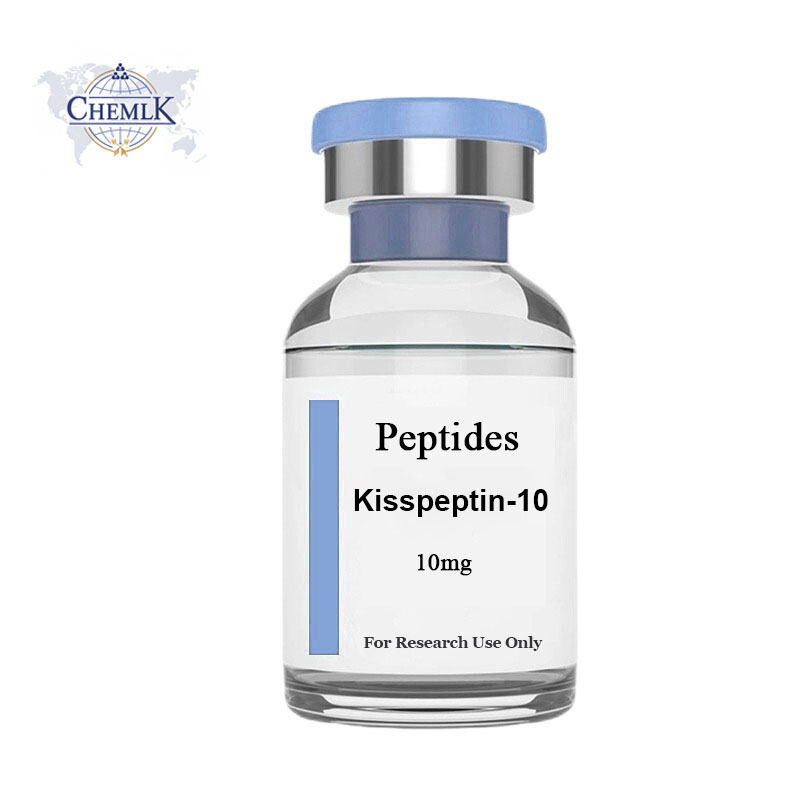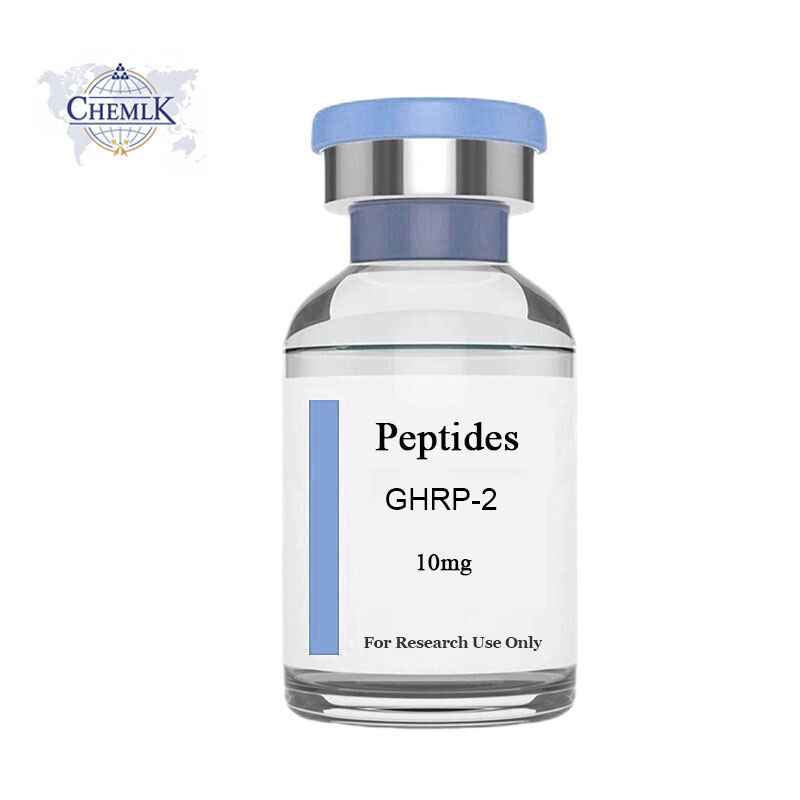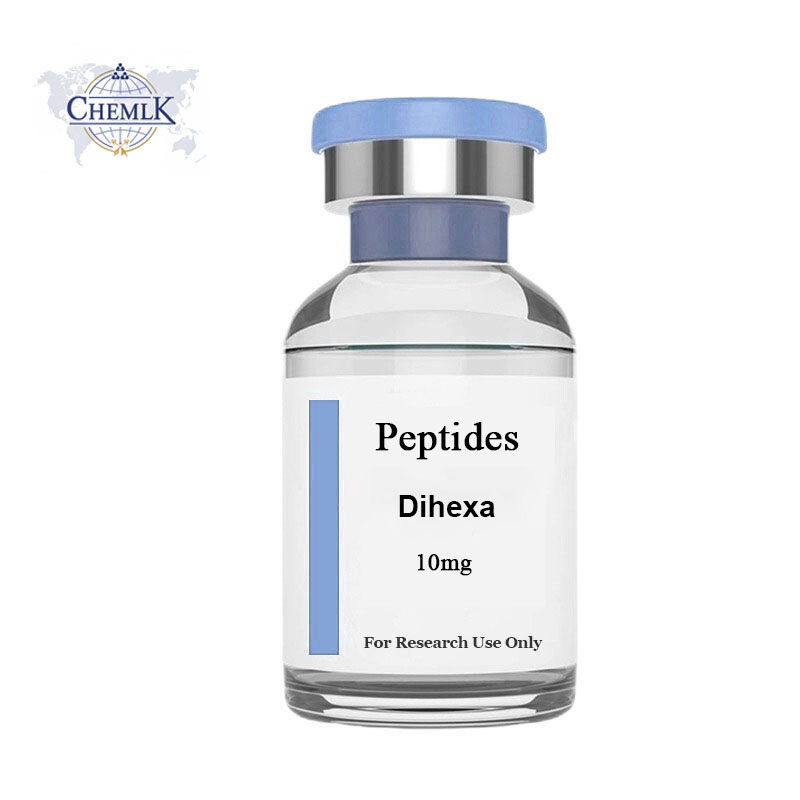
Introduction to Kisspeptin Peptides
Peptides have become a cornerstone in modern medical and biotechnological research due to their ability to target specific biological pathways with high precision. One such peptide, Kisspeptin, has garnered significant attention in the field of reproductive medicine, endocrinology, and neurobiology.Kisspeptin, a naturally occurring neuropeptide,is encoded by the KISS gene and plays a crucial role in puberty initiation, reproductive hormone regulation, and fertility. It is primarily involved in the modulation of the hypothalamic-pituitary-gonadal (HPG) axis
making it a key regulator of hormonal balance in both males and females. Beyond its reproductive functions, Kisspeptin has also been studied for its potential roles in metabolism, cancer suppression, and neuroendocrine disorders.
This article explores the mechanisms, medical applications, and future prospects of Kisspeptin peptides in various clinical and scientific domains.
Mechanism of Action of Kisspeptin Peptides
Kisspeptin functions through its interaction with the G-protein-coupled receptor KISS1R (formerly known as GPR54), which is widely expressed in the hypothalamus, pituitary gland, and gonads. This interaction triggers a cascade of hormonal responses that regulate gonadotropin-releasing hormone (GnRH) secretion, influencing luteinizing hormone (LH) and follicle-stimulating hormone (FSH) release.
Key Mechanisms of Kisspeptin Peptides:
- Regulation of Puberty and Fertility – Kisspeptin initiates and maintains puberty by stimulating GnRH neurons, leading to the production of LH and FSH, which are critical for gonadal function.
- Modulation of Reproductive Hormones – It acts as a potent activator of reproductive hormones, ensuring proper menstrual cycles, ovulation, and sperm production.
- Influence on Sexual Behavior and Mood – Studies suggest that Kisspeptin may play a role in modulating sexual arousal and emotional responses related to reproduction.
- Metabolic and Endocrine Regulation – Kisspeptin interacts with metabolic hormones such as insulin and leptin, linking reproductive function with energy homeostasis.
- Potential Role in Cancer Therapy – Kisspeptin and its receptor KISS1R have been identified as tumor suppressors, inhibiting cancer metastasis in certain types of malignancies.
Through these mechanisms, Kisspeptin peptides offer a wide range of therapeutic benefits in reproductive medicine and beyond.
Medical Applications of Kisspeptin Peptides
1. Treatment of Hypogonadotropic Hypogonadism (HH)
Hypogonadotropic hypogonadism (HH) is a condition characterized by low levels of sex hormones due to insufficient GnRH secretion. Kisspeptin peptides have emerged as a potential therapy for HH by directly stimulating GnRH release.
How Kisspeptin Peptides Treat HH:
- Induce natural pulsatile GnRH secretion, restoring hormonal balance.
- Improve testosterone production in males and estrogen regulation in females.
- Offer a non-invasive alternative to traditional hormone replacement therapies.
Clinical Insights:
Clinical trials have demonstrated that Kisspeptin administration leads to increased LH and FSH levels, making it a promising treatment for individuals with delayed puberty or infertility caused by HH.
2. Fertility Enhancement and Assisted Reproduction
Kisspeptin is a key player in reproductive hormone regulation, making it useful for treating infertility and optimizing assisted reproductive technologies (ARTs).
How Kisspeptin Enhances Fertility:
- Stimulates ovulation induction in women undergoing in vitro fertilization (IVF).
- Reduces the risk of ovarian hyperstimulation syndrome (OHSS), a common side effect of traditional fertility treatments.
- Improves spermatogenesis in men with low sperm count or quality.
Clinical Potential:
Ongoing research suggests that Kisspeptin-based therapies could provide a safer and more effective alternative to traditional fertility drugs like hCG (human chorionic gonadotropin).
3. Metabolic Regulation and Obesity Treatment
Recent studies indicate that Kisspeptin plays a role in metabolism and energy balance, linking reproductive health with body weight regulation.
How Kisspeptin Peptides Influence Metabolism:
- Modulate insulin sensitivity, preventing metabolic disorders.
- Interact with leptin, a hormone responsible for appetite regulation.
- Improve energy expenditure, reducing fat accumulation.
Potential Therapeutic Use:
Kisspeptin-based treatments may help manage obesity-related infertility and metabolic syndrome, providing a dual benefit for patients struggling with weight and reproductive health issues.
4. Kisspeptin in Cancer Therapy
Kisspeptin has been recognized for its role in tumor suppression, particularly in breast, ovarian, and melanoma cancers.
How Kisspeptin Peptides Help in Cancer Treatment:
- Inhibit cancer metastasis by reducing cell migration and invasion.
- Suppress tumor growth through interaction with KISS1R.
- Enhance immune system function, potentially improving cancer immunotherapy outcomes.
Clinical Research:
Studies suggest that high levels of Kisspeptin expression correlate with reduced metastasis in certain cancers, making it a potential biomarker and therapeutic target.
5. Neurological and Psychological Applications
Kisspeptin has shown promise in neurological and behavioral studies, particularly in regulating sexual behavior, mood, and stress responses.
How Kisspeptin Peptides Affect the Brain:
- Enhance sexual motivation and reproductive behavior.
- Modulate stress responses, potentially reducing anxiety and depression.
- Influence memory and cognition, offering potential in treating neurodegenerative diseases.
Clinical Potential:
Kisspeptin could be explored for treating sexual dysfunction, depression, and cognitive decline in aging populations.
Future Prospects of Kisspeptin Peptides
The future of Kisspeptin research holds immense promise, with ongoing clinical trials and experimental therapies exploring its full potential. Future developments may include:
- Kisspeptin-based drugs for infertility treatment.
- Peptide therapies for metabolic and obesity-related disorders.
- Cancer treatments targeting KISS1R pathways.
- Neuroendocrine therapies for mood and cognitive enhancement.
With continued research, Kisspeptin peptides could revolutionize reproductive medicine, oncology, and metabolic therapies, offering safer and more effective treatment options.
Conclusion
Kisspeptin peptides represent a groundbreaking advancement in hormonal regulation, fertility treatment, metabolic health, and cancer therapy. Their ability to modulate GnRH secretion, influence metabolism, and suppress tumor growth makes them a versatile and powerful tool in modern medicine.
As research progresses, Kisspeptin-based treatments may offer new hope for patients suffering from infertility, metabolic disorders, cancer, and neuroendocrine dysfunctions, paving the way for innovative and personalized medical solutions in the years to come.















